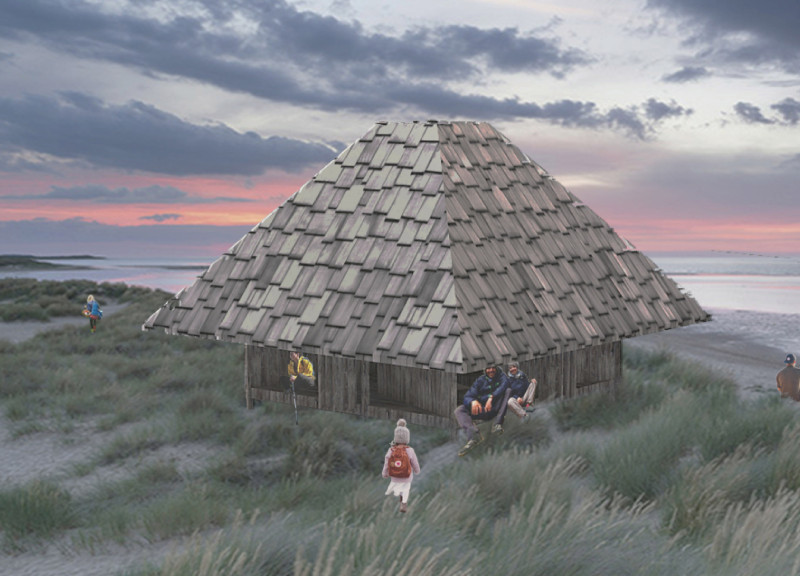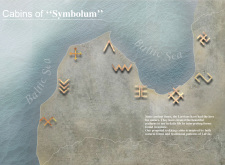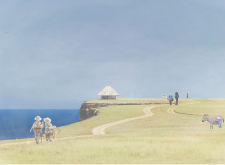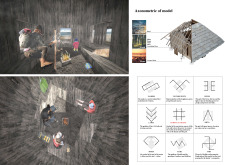5 key facts about this project
## Overview
Located along the Baltic Sea in Latvia, the "Cabins of Symbolum" project consists of a series of trekking cabins designed to harmonize with the natural landscape while reflecting Latvian cultural heritage. Each cabin integrates traditional design elements inspired by local symbols and motifs, serving both as functional shelter for trekkers and as a celebration of regional identity.
## Materiality and Sustainability
The design prioritizes sustainable practices through the selection of locally sourced materials such as driftwood, timber, and stone. Driftwood is employed for the roofing structure, while timber forms the primary material for cabin walls, beams, and pillars. Stone serves as a robust foundation, reinforcing the permanence of the structures. Additionally, the design features an accent door that incorporates cultural narratives, enhancing the overall character of the cabins. This careful consideration of materiality not only reduces the ecological footprint but also fosters a connection to the local environment.
## Architectural Features and User Experience
The cabins exhibit a simplistic yet impactful design characterized by sloped roofs reminiscent of traditional Latvian cottages. This roof shape facilitates effective water runoff and contributes to the buildings' durability. Interiors are thoughtfully planned to accommodate both communal and private activities, featuring open areas around a central fire pit that encourages social interaction while providing cozy nooks for individual rest. Furthermore, the inclusion of Latvian symbols within the interior and structural elements enriches the user experience, promoting cultural engagement and visual narrative. Positioned to optimize scenic views, the cabins invite interaction with the surrounding landscape, enhancing accessibility through pathways that encourage exploration of the natural setting.





















































